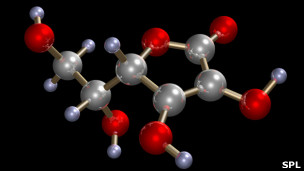Vocabulary: shape and size 型状与大小

Do you appreciate the small things in life?
In physics, infinitely small things are problematic. If a structure can be infinitely divided into smaller parts, can there be such a thing as a smallest possible space or does this division go on eternally? Does nature have a limit for the tiniest possible unit?
收听与下载
The Greek philosopher Democritus suggested that matter was made of minute, round particles that he called 'atoms'. JJ Thomson discovered that atoms could be split further into smaller parts and extracted electrons from these. Experiments since have revealed that the nucleus of an atom is made up of protons and neutrons, which, in turn, are composed of quarks. It's hard to imagine just how small these particles are, but to give you an idea: there are more atoms in each of us than there are stars in the universe.
Each time we discover a smaller unit, this, in turn, is composed of even more minuscule parts. But scientists haven't been able to split quarks or electrons - not even with the help of the Large Hadron Collider, the particle accelerator that is used to study the smallest known particles. Forces in nature get stronger at shorter distances; the smaller they are, the harder it is to separate them.
It's not just size that matters, but also shape. If the Large Hadron Collider ever allows us to study the smallest possible objects, would they be round? Or would they look like microscopic bits of string, as the String theory suggests?
The search for the smallest building blocks challenges our understanding of the very nature of space and time. And that's why the smallest thing in the universe is a pretty big deal.
Glossary 词汇表 (点击单词收听发音)
- quark夸克
- particle粒子
- unit单位
- minuscule极小的
- microscopic微观的
- building blocks基础材料
- big deal 至关重要的大事, 非同小可












